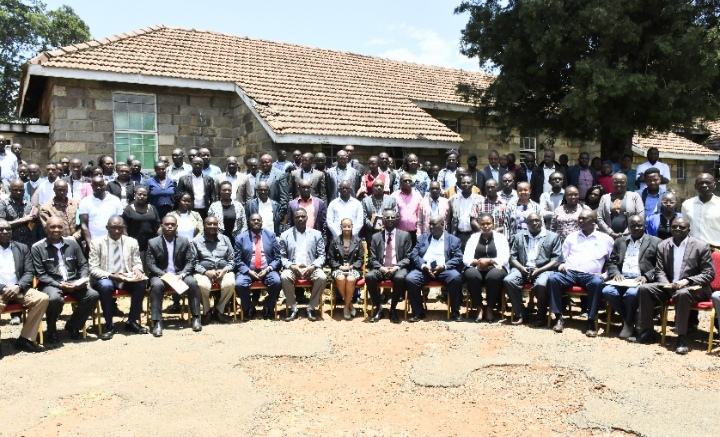Kericho,
Saturday March 23 2024,
KNA by Kibe Mburu
Kericho residents have been urged to formally lodge complaints against advocates who engage in professional misconduct to the Advocates Complaints Commission (ACC) for disciplinary action.
In a sensitization forum held at the Kericho Teachers Training College, participants were enlightened on the mandate of the Advocates and Complaints Commission which is under the Office of the Attorney General and Department of Justice and is responsible for receiving, investigating, promoting, reconciliation and prosecuting complaints made against an advocate.
While making his presentation at the forum, ACC Commissioner Mr. Peter Nyaga explained the types of complaints that could be reported to the commission, which included situations where an advocate withholds clients’ funds, failure to account a client, failure to keep a client informed, issuing cheques which are subsequently dishonoured, adding that the latter is also a criminal offence.
The Commissioner further said that failure by an advocate to honour a professional undertaking, delay in prosecuting or finalizing a client’s matter, failure to reply to correspondences from professional colleagues, overcharging the client, failure to attend court, conflict of interest among others could be reported to the Commission for disciplinary action to be taken against the advocate.
“Services are free of charge and we aim to inspire greater public confidence in the legal profession and so anyone aggrieved can lodge a complaint as soon as possible, when the evidence is still fresh,” added Nyaga.
The Commissioner revealed that in the last financial year 2022-2023, a total of 2,863 clients were successfully attended to and disciplinary action taken against errant advocates, while, this financial year 2023-2024, so far, a total of 1584 clients have been attended to.
During the forum, participants were sensitized on how to deal with advocates professionally by ensuring all instructions and communications were in writing, and also ensuring a clear agreement on fees and mode of payment was well stipulated in writing.
“Also agree on meeting times and venues in writing, agree on the scope of advocate engagement in writing and always ask to retain copies of all documents and communications as well as payment receipts,” said Nyaga
The participants were also taken through the process on how to lodge a complaint with the Commission which starts by obtaining a help form online (www.acc.go.ke) then filling the form and attaching identification documents and other evidence supporting the complaint, then submitting a signed and scanned help-form to acc@ag.go.ke.
Types of cases the Commission cannot handle include those relating to negligence of advocates in the discharge of their duties and complaints against judicial officers and State Counsels.
Others in attendance were ACC Commissioner Mweni Kalola, the National Government Administration Officers (NGAO), representatives of the youth, among other government officials.
Courtesy; KNA


